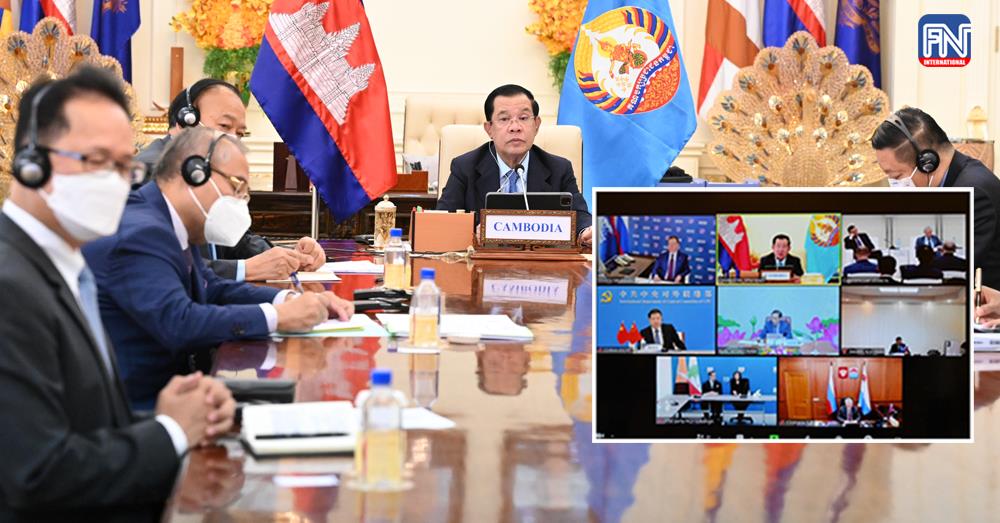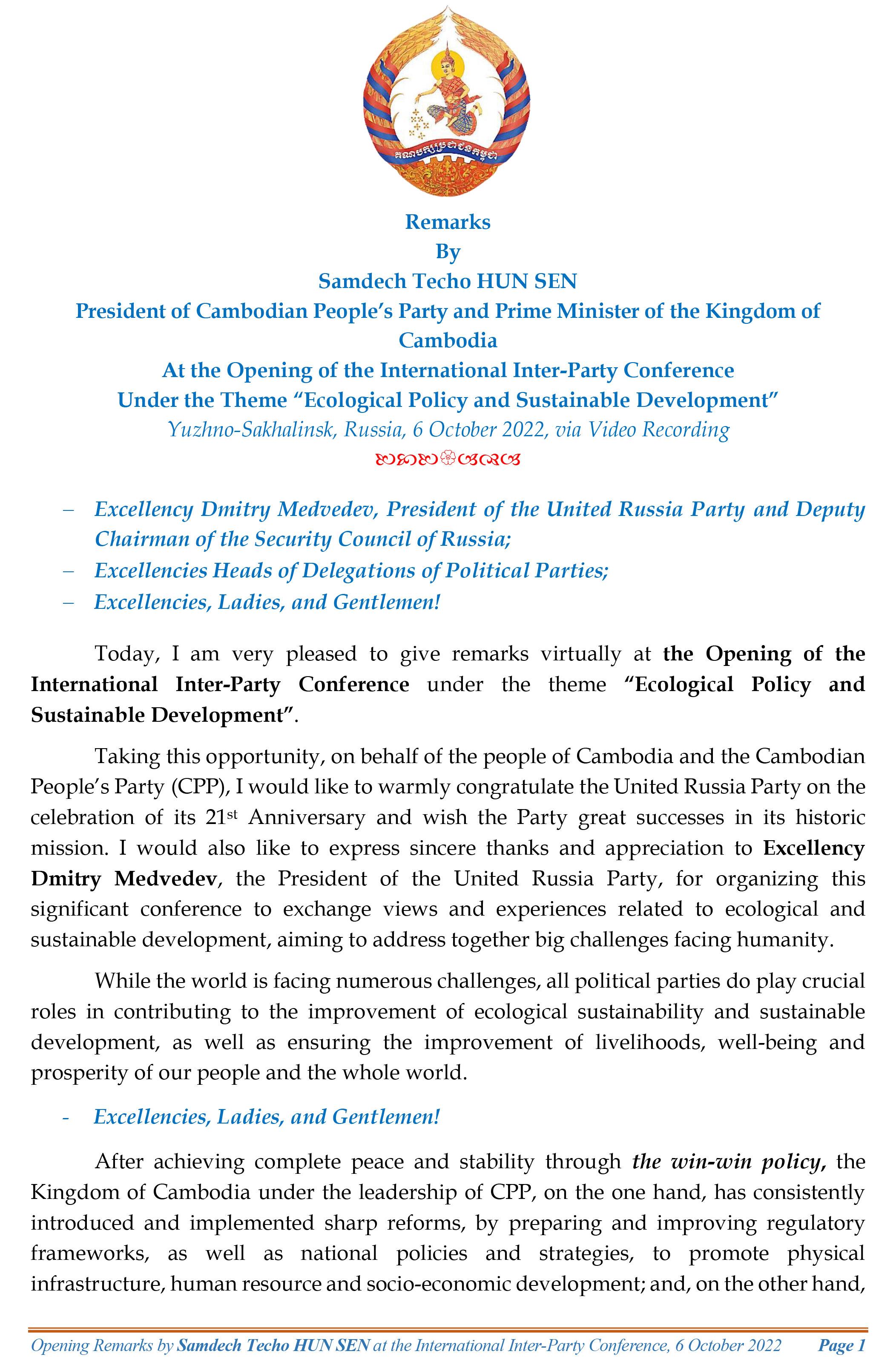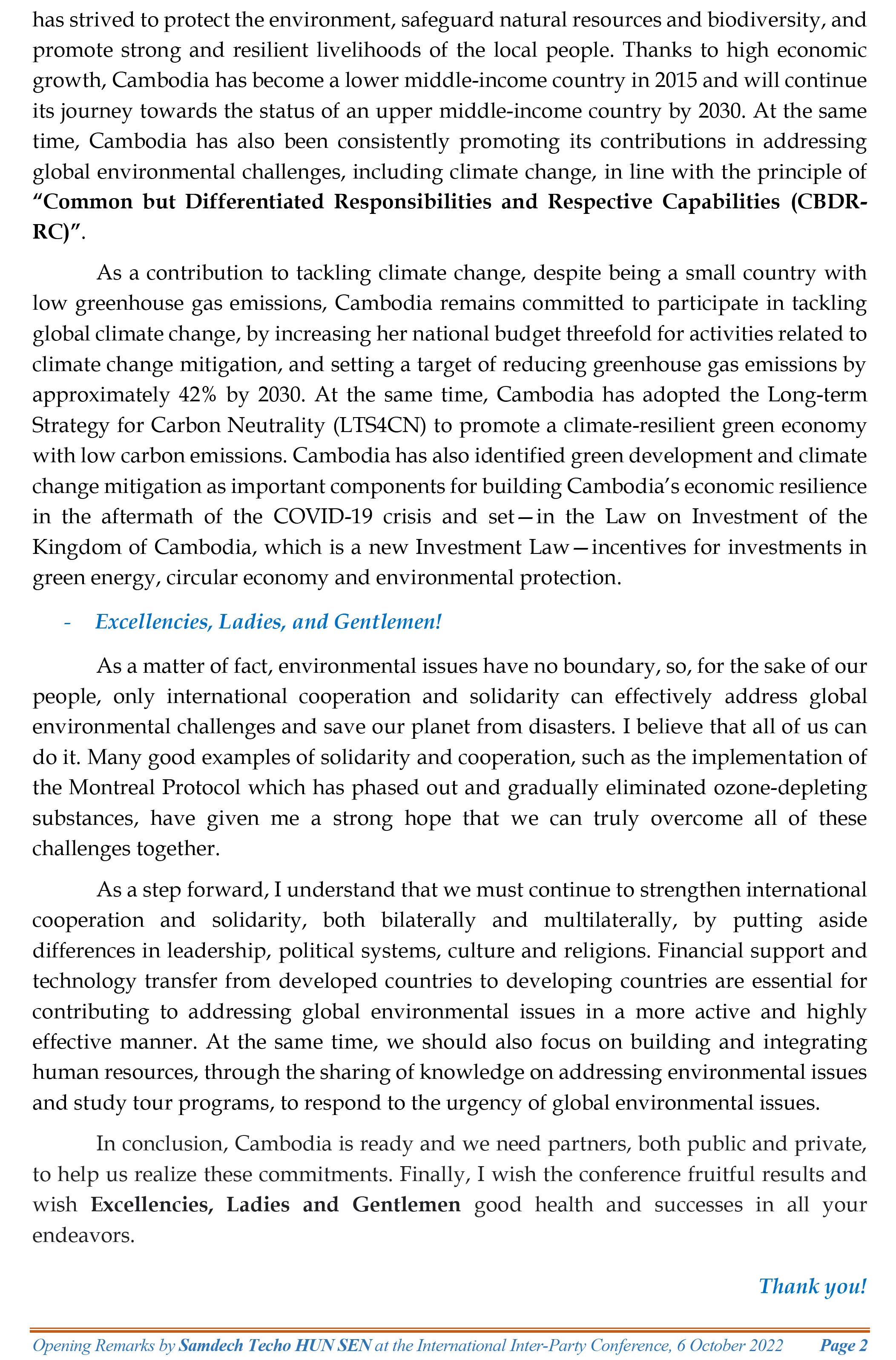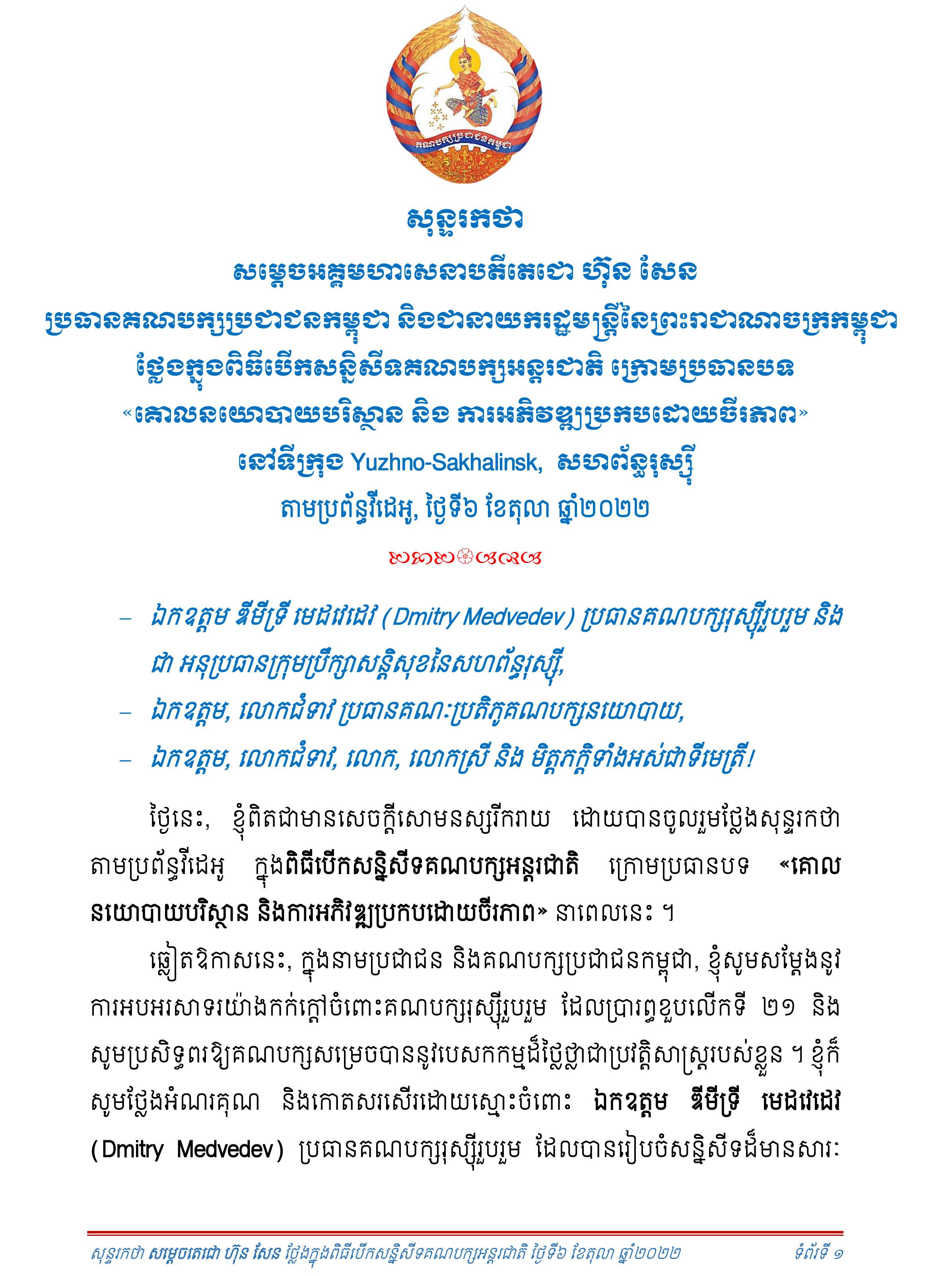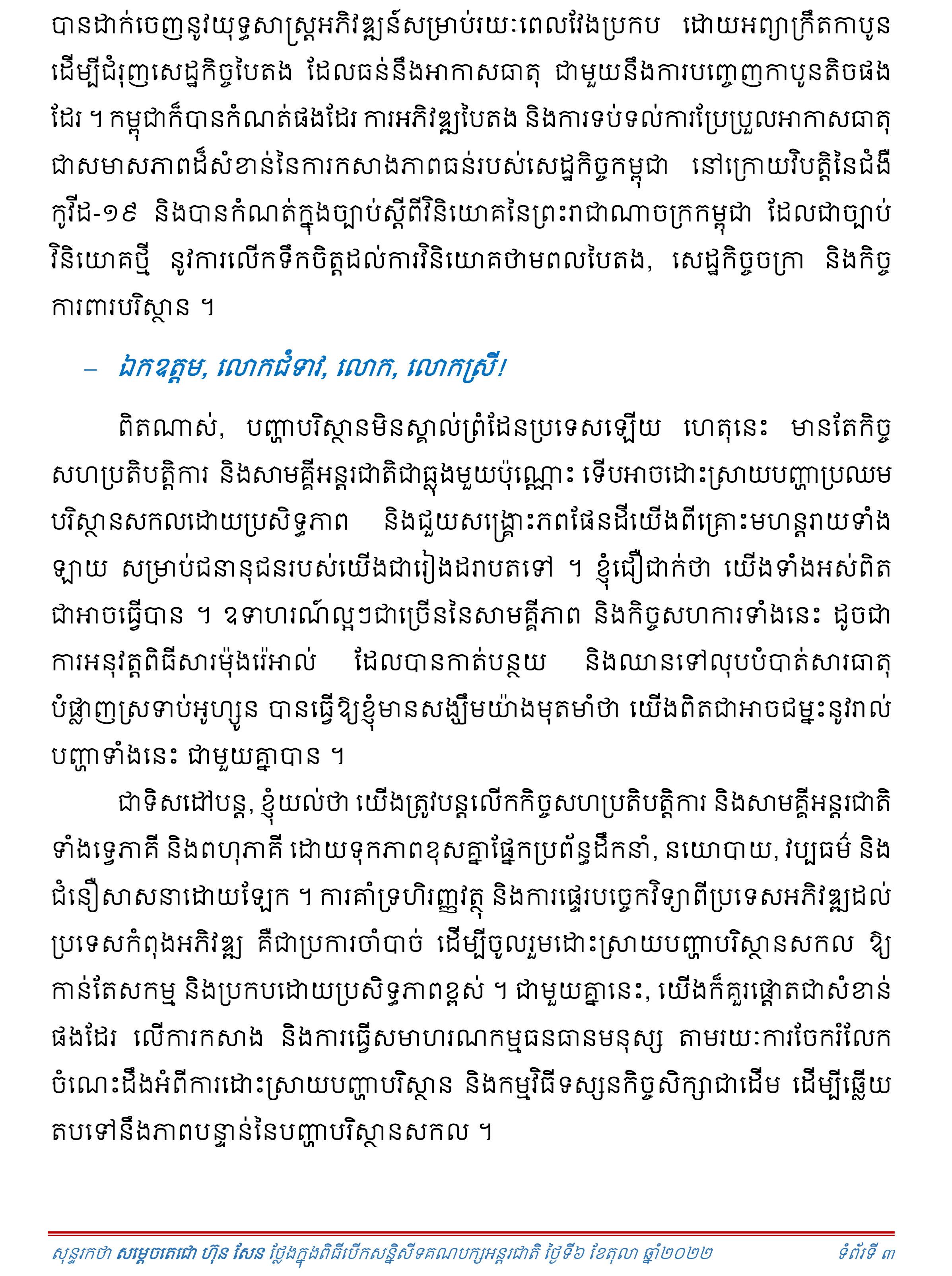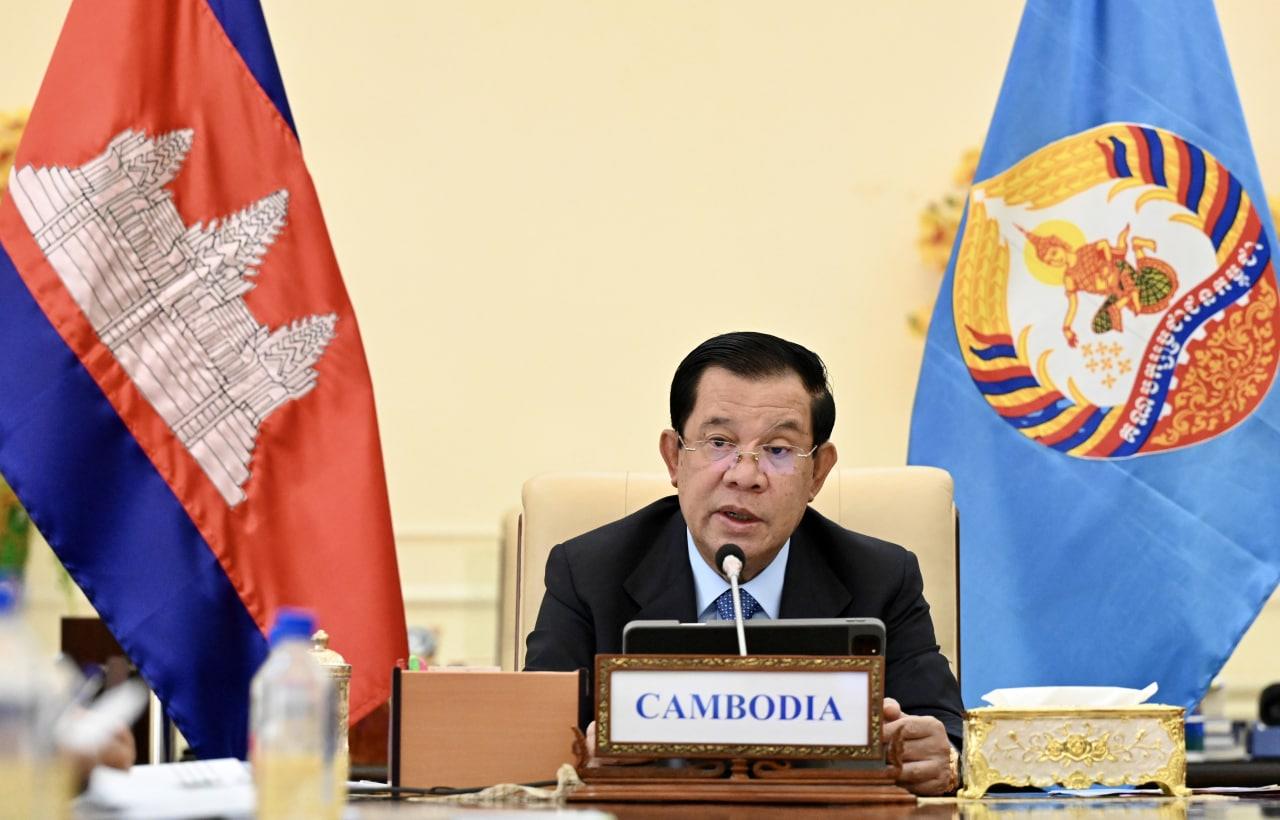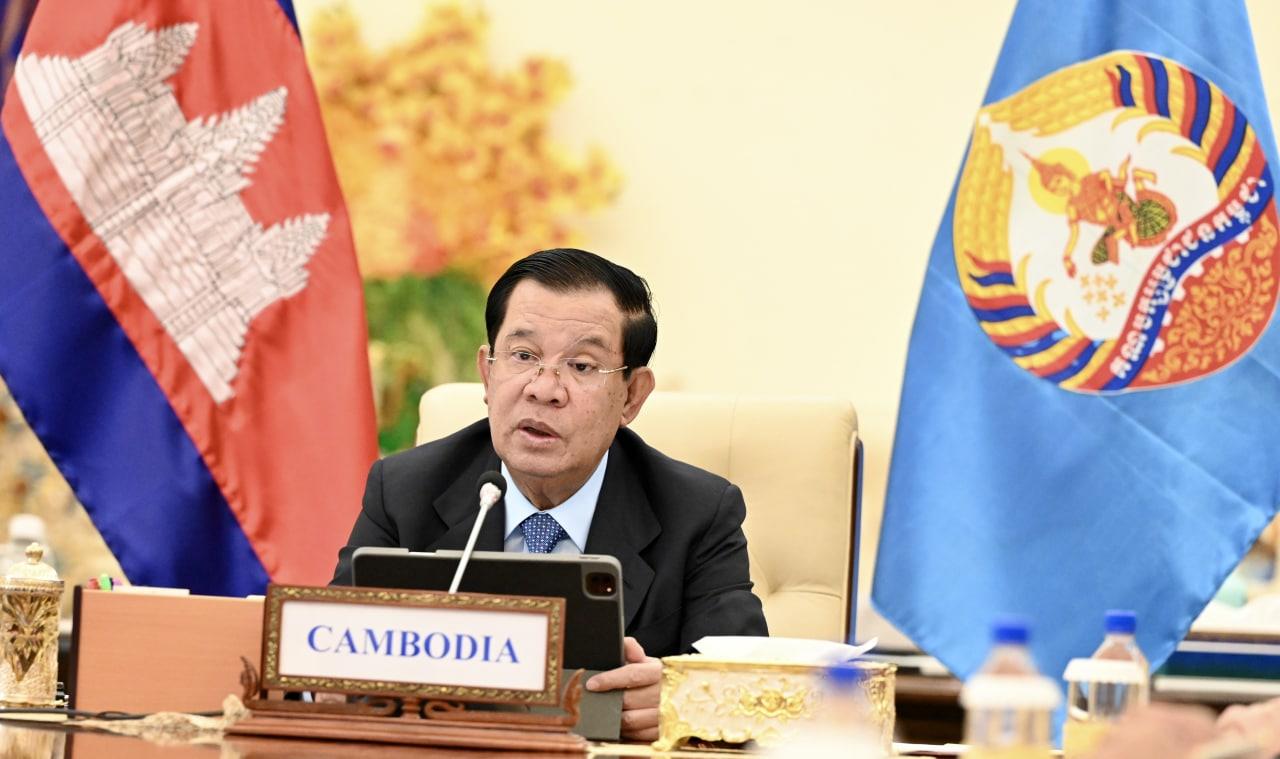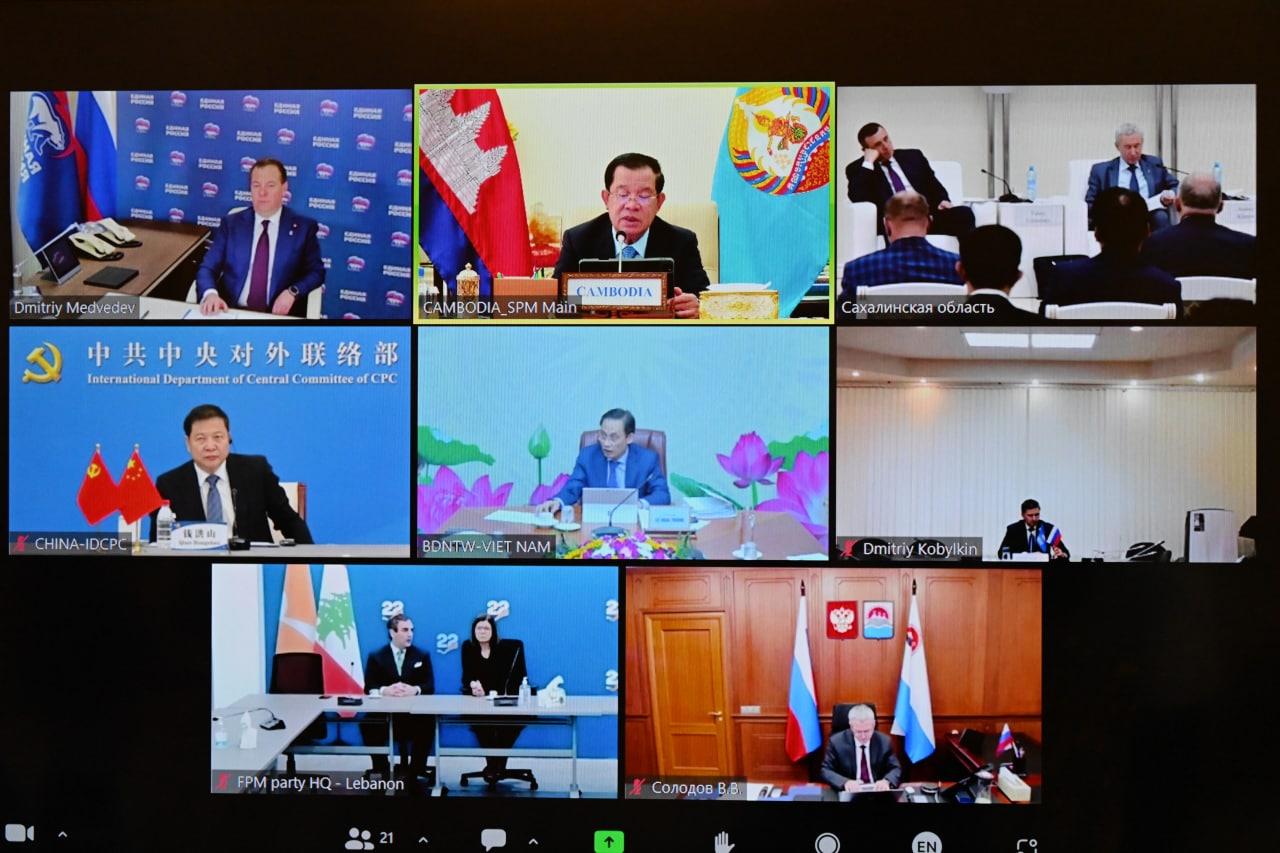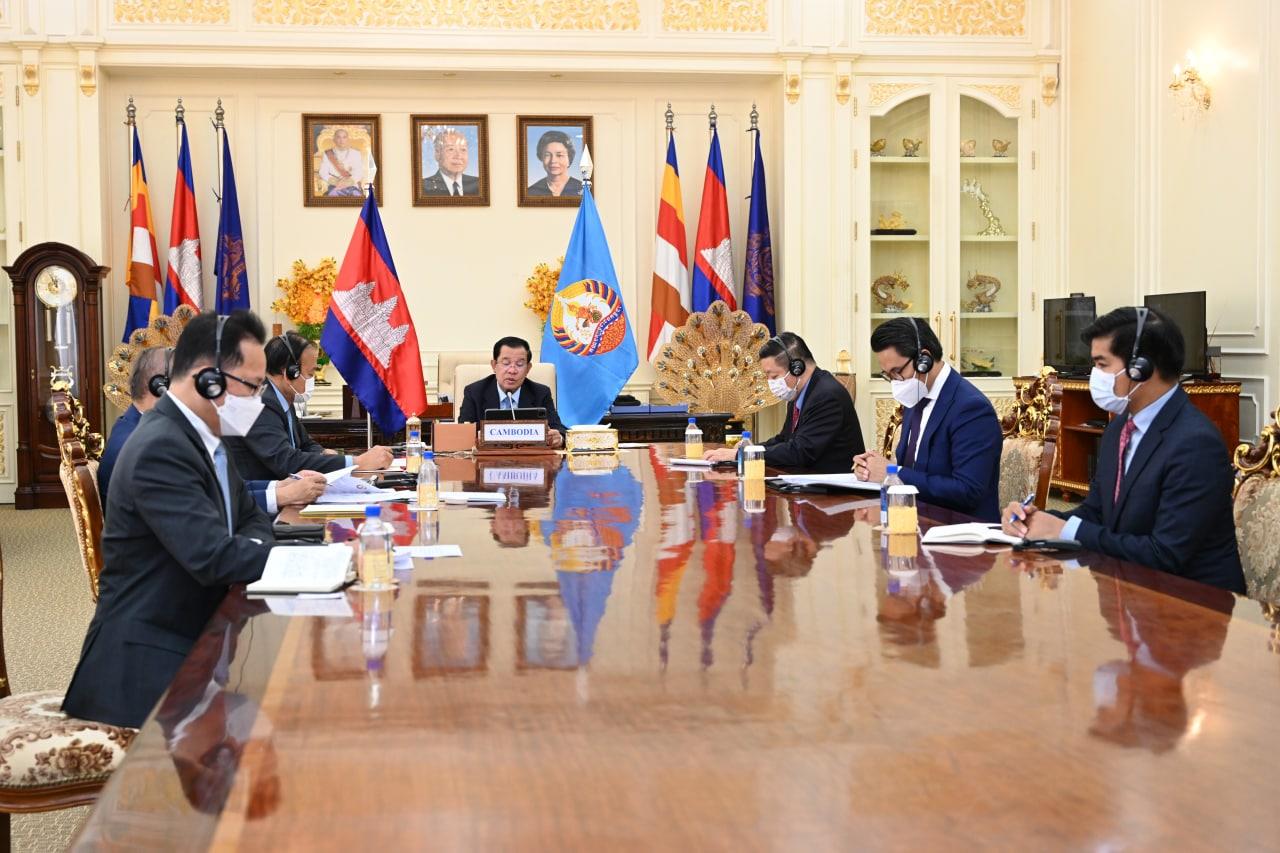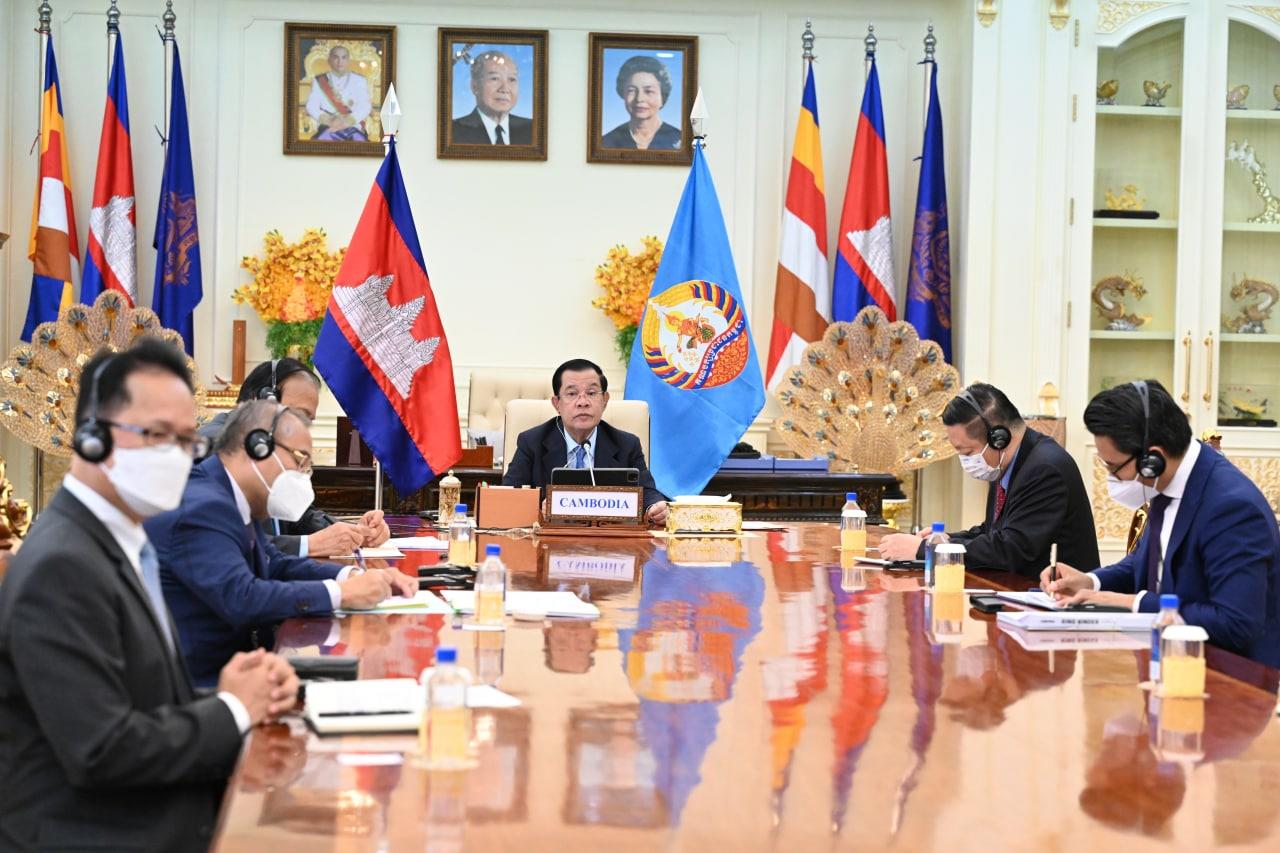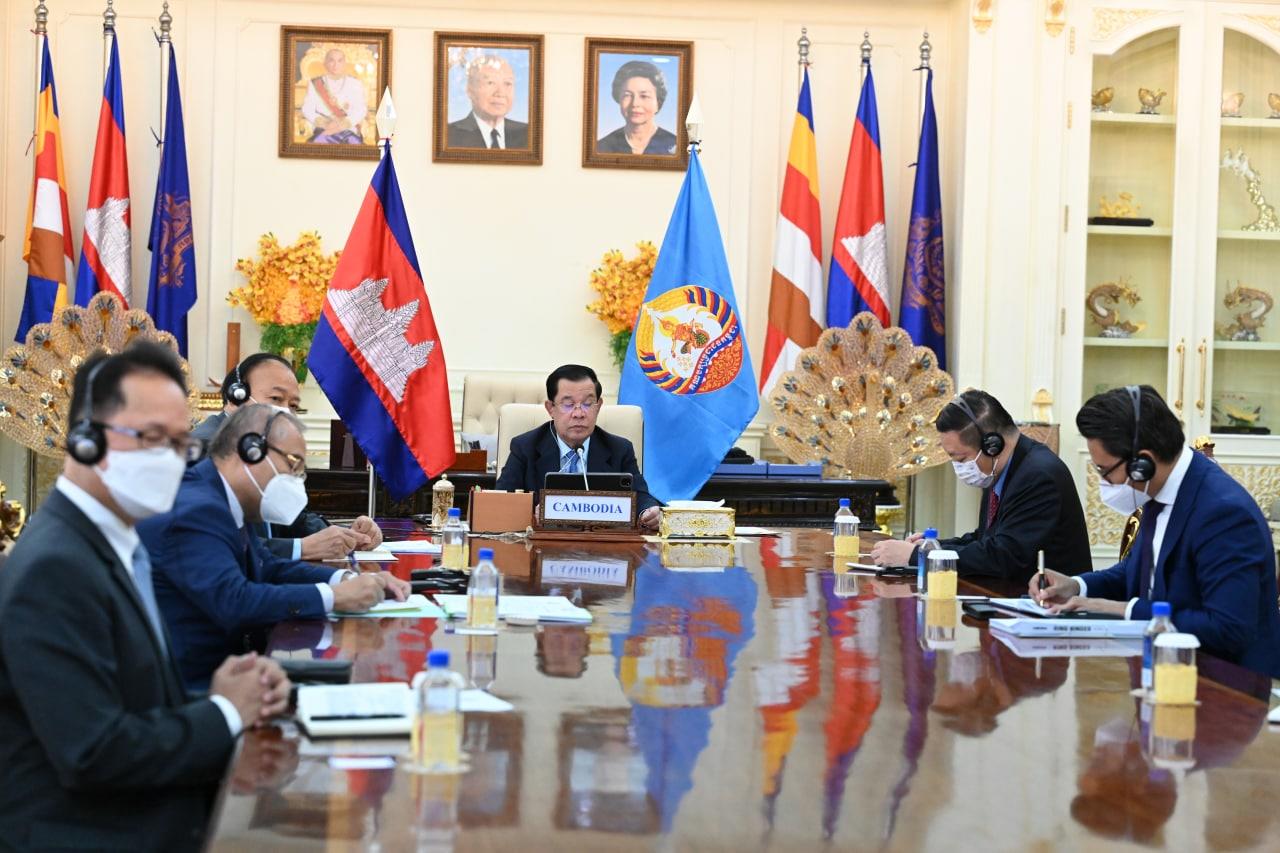Phnom Penh (FN), Oct. 6 – Cambodian prime minister Hun Sen, also the president of Cambodian People's Party (CPP), said that Cambodia remains committed to participate in tackling global climate change, by increasing her national budget threefold for activities related to climate change mitigation, and setting a target of reducing greenhouse gas emissions by approximately 42% by 2030.
The premier spoke at the International Inter-party Conference under the theme “Ecological Policy and Sustainable Development”, held on Thursday (Oct 6) via Video Recording.
"While the world is facing numerous challenges, all political parties do play crucial roles in contributing to the improvement of ecological sustainability and sustainable development, as well as ensuring the improvement of livelihoods, well-being and prosperity of our people and the whole world," the premier underscored.
After achieving complete peace and stability through the win-win policy, the Kingdom of Cambodia under the leadership of CPP, on the one hand, has consistently introduced and implemented sharp reforms, by preparing and improving regulatory frameworks, as well as national policies and strategies, to promote physical infrastructure, human resource and socio-economic development; and, on the other hand, has strived to protect the environment, safeguard natural resources and biodiversity, and promote strong and resilient livelihoods of the local people.
Thanks to high economic growth, Cambodia has become a lower middle-income country in 2015 and will continue its journey towards the status of an upper middle-income country by 2030. At the same time, Cambodia has also been consistently promoting its contributions in addressing global environmental challenges, including climate change, in line with the principle of "Common but Differentiated Responsibilities and Respective Capabilities (CBDR-RC)".
"As a contribution to tackling climate change, despite being a small country with low greenhouse gas emissions, Cambodia remains committed to participate in tackling global climate change, by increasing her national budget threefold for activities related to climate change mitigation, and setting a target of reducing greenhouse gas emissions by approximately 42% by 2030," the premier continued.
Samdech said, at the same time, Cambodia has adopted the Long-term Strategy for Carbon Neutrality (LTS4CN) to promote a climate-resilient green economy with low carbon emissions. Cambodia has also identified green development and climate change mitigation as important components for building Cambodia's economic resilience in the aftermath of the COVID19 crisis and set-in the Law on Investment of the Kingdom of Cambodia, which is a new Investment Law-incentives for investments in green energy, circular economy and environmental protection.
"As a matter of fact, environmental issues have no boundary, so, for the sake of our people, only international cooperation and solidarity can effectively address global environmental challenges and save our planet from disasters."
"I believe that all of us can do it. Many good examples of solidarity and cooperation, such as the implementation of the Montreal Protocol which has phased out and gradually eliminated ozone-depleting substances, have given me a strong hope that we can truly overcome all of these challenges together."
"As a step forward, I understand that we must continue to strengthen international cooperation and solidarity, both bilaterally and multilaterally, by putting aside differences in leadership, political systems, culture and religions. Financial support and technology transfer from developed countries to developing countries are essential for contributing to addressing global environmental issues in a more active and highly effective manner. At the same time, we should also focus on building and integrating human resources, through the sharing of knowledge on addressing environmental issues and study tour programs, to respond to the urgency of global environmental issues," Samdech added.
Cambodia is ready and we need partners, both public and private, to help us realize these commitments.
=FRESH NEWS
